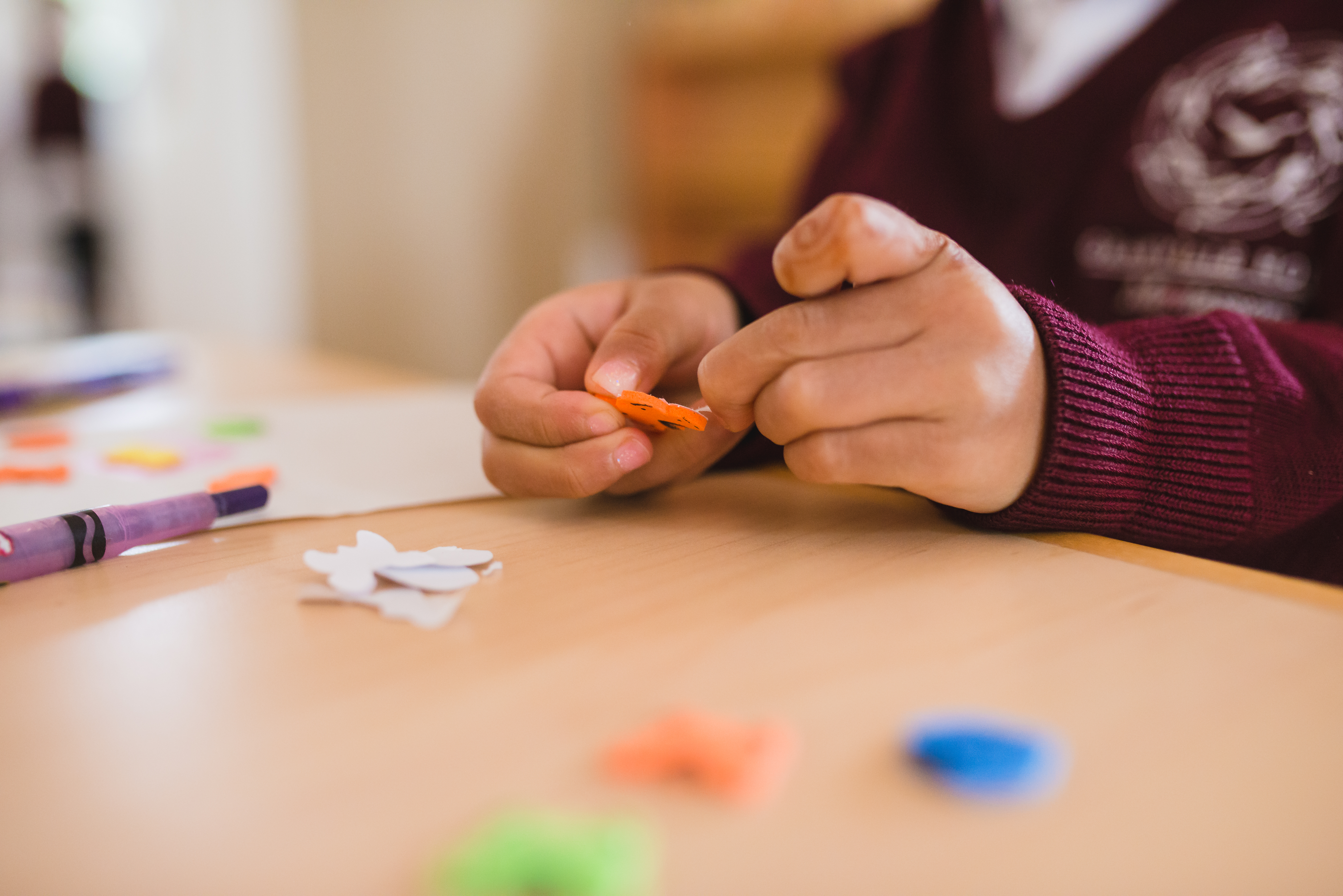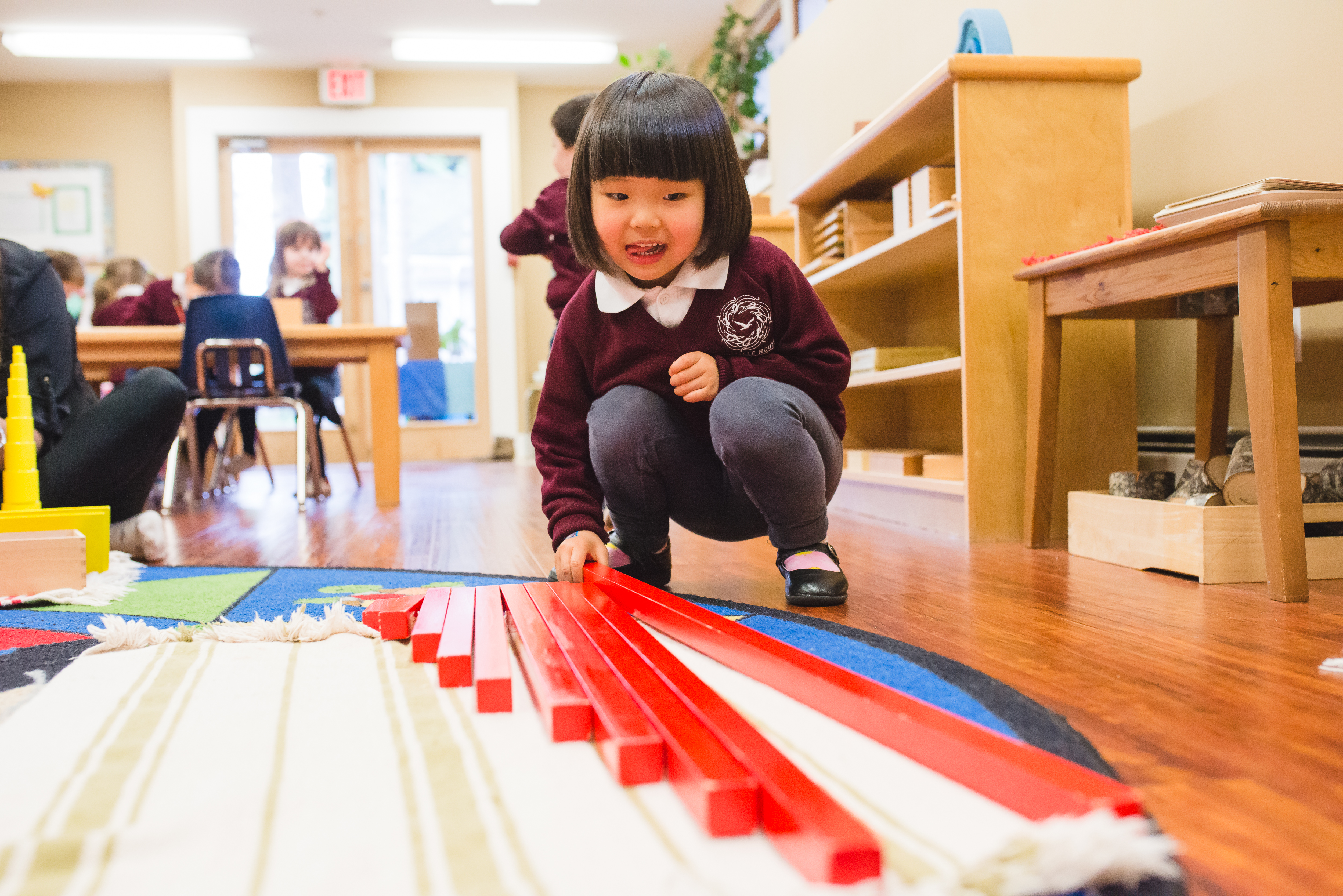
FULL DAY Sessions 8:30AM – 3:30PM
PRESCHOOL Morning Sessions: 8:30AM – 11:30AM
PRESCHOOL Afternoon Sessions: 12:30PM – 3:30PM
Sensorial
All of our learning is filtered through the senses. Sensorial materials help a child develop and refine his or her senses as well as provide the necessary foundation for both physical and mental activities in learning. Sensorial materials provide an opportunity for the child to explore the relationship of colour, weight, shape, size, texture, sound and smell. The child learns to compare, contrast, reason, classify and categorize physical properties in his or her world.
Practical life
A child’s environment is an opportunity and source for great learning. Practical life activities fall into four main categories:
- Development of concentration
- Fine motor development
- Refinement of hand control
- Development of child’s sense of order
- Preparation for writing
Language
The Montessori Language program is rich with opportunities for children to develop his or her language skills, vision, hearing, speech and fine motor skills. Children are exposed to various types of phonetic awareness activities to build a strong literary foundation. Language activities include learning the shapes and sounds of letters, practicing fine motor skills by writing, matching words and pictures, practicing parts of grammar ( nouns, verbs, adjectives, etc.), creating sentences and reading silently.
Mathematics
The Math area has materials that allow the child to move from concrete to abstract. This type of work gives children a solid understanding of Math principles and helps to develop them for abstract reasoning and problem-solving capabilities. Mathematics activities are divided into six categories;
- Decimal system
- Numeration
- Linear counting
- Squaring and cubing
- Concrete abstraction
- Time
Yoga
At Granville House Montessori, we promote lifelong habits of health and stress reduction. There are many benefits children derive from yoga. Physically, it enhances their flexibility, coordination, body awareness and strength. Practicing yoga also increases their concentration and increases their sense of calmness and relaxation. Regular practice of yoga provides children an opportunity to exercise, play and connect with the inner self.
Cooking
Practical life activities are considered to be one of the most important areas of Montessori education as they develop coordination, concentration and independance. Our children enjoy activities that involve food preparation.
Gardening
Located on site among 100 plus years trees. The park boasts plenty of areas for children to run, expansive playground, riverside trails and picnic area. The children have an opportunity to take daily nature walks, learn about various plants, trees, bugs, and the environment we live in. The children also have an opportunity to garden in the park and enjoy the beautiful nature that surrounds our school.
French/Mandarin
The French and Mandarin programs are based on oral comprehension where children learn vocabulary and conversational skills using songs and playing games. Children are taught the national anthem in English and French.
Cultural Studies
The Montessori method provides children the opportunity to explore their environment and cultivate a genuine curiosity for the world in which they live in. Cultural subjects include Geography, Foreign languages, Science, Botany, Zoology, and Art and Music.
Studying Geography and Foreign Languages allows the children the opportunity to understand their own culture as well as many others. The children can relate and understand cultural diversity and ultimately come to appreciate differences between humankind. Further, they develop a deeper and more literary understanding of language.
Science
Science in the Montessori classroom allows the children to observe and work with hands on experiments that will cultivate a lifelong interest in nature and discovering more about our unique world.
Botany
Through the study of Botany, the children learn about plants ( what they look like, how to take care of them, how they grow, etc.) so that they may appreciate nature.
Zoology
The study of Zoology shows children animals from around the world ( where they live, their unique Eco-systems, what they eat, how they grow, etc).
Art and Music
The study of Art and Music allows the children a unique opportunity to express themselves. Moving, dancing and singing among their peers facilitate social and emotional development in a constructive way.

